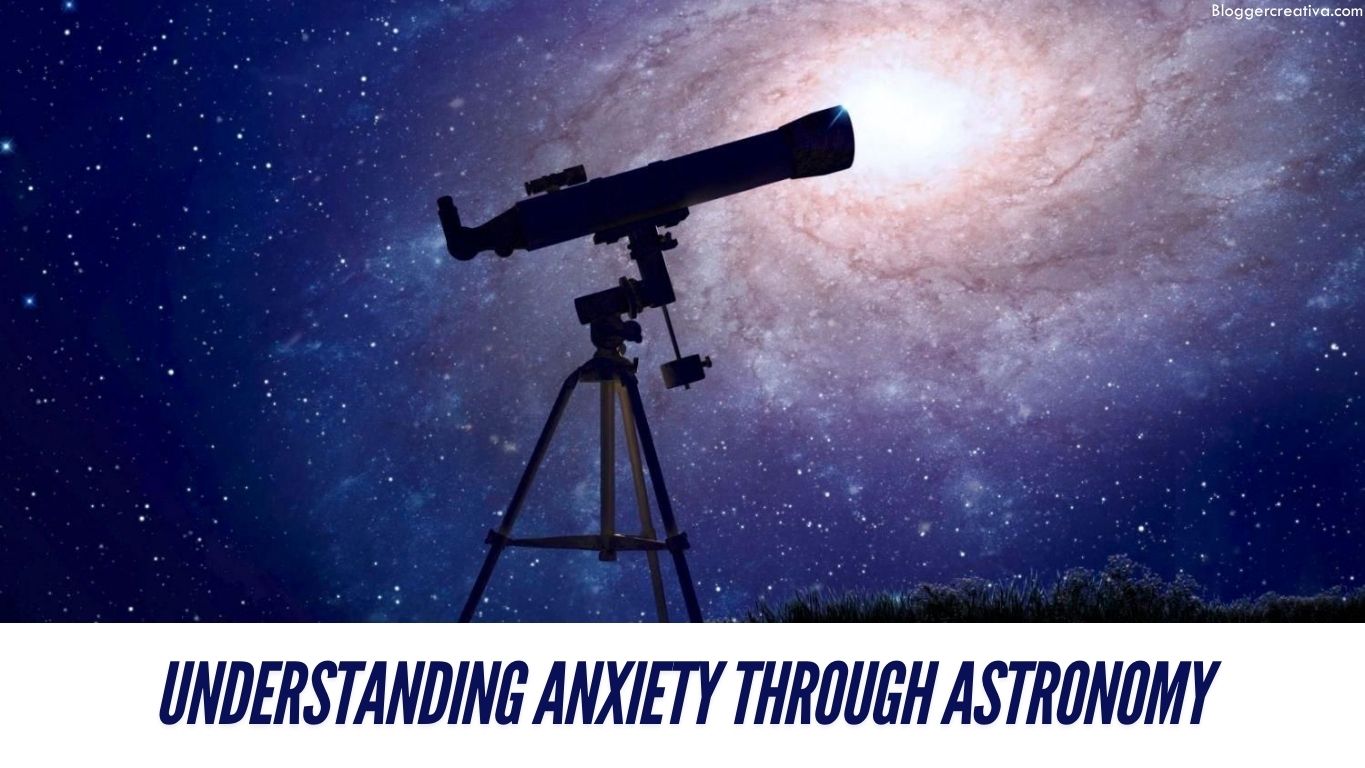Astronomy is the science that has above Earth study of celestial objects, space, and phenomena. The phenomenon of this science has intrigued human thought for thousands of years, dealing with everything from the finer details in planetary systems to the wide mysteries of galaxies. Yet astronomy can be an eye with which to see the depths of human experiences in anxiety and mental illness such as depression. The following article shows how astronomy helps us gain insight into anxiety and other mental illnesses like depression.
What is Astronomy?
Astronomy is the science that has to do with celestial objects, such as stars, planets, comets, and galaxies, as well as phenomena that take place beyond Earth’s atmosphere. The astronomy uses mathematics, physics, and chemistry to explain how these celestial entities originated and evolved. Astronomy is considered one of the earliest sciences, and it had been practised even in early civilizations, like the Babylonians, who recorded each night’s sky to make calendars and navigate their environment. The field has been incredibly dynamic through the centuries and branched off into observational and theoretical astronomy, where data from celestial observations is analyzed to understand the workings of the universe.
Mindful Breathing Exercise To Start Your Day With Clarity And Calmness
Astronomy and Mental Health Intersection
The outer space can give a unique point of view on inner human experiences. Anxiety, for one, can be overwhelming because it refers to excessive worrying and fear of what is going to happen in the future. Where else might one turn to better put their life into perspective and reduce anxiety? Space exploration and astronomy encourage humankind to consider its role within a massive universe and offer a cosmic perspective to possibly ease the anxiety experienced in everyday life. For, after all, can it be any worse, looking at the problems against this expanse of infinite space?
- Cosmic Scale: The size of the universe can humble anyone. When people come across their fears regarding personal issues—work stress or relationship the thought of how tiny we are compared to galaxies brings relief. This makes the person take a step back from his immediate issues and look at them in the bigger picture.
- Nature Link: The study of astronomy mostly requires one to spend some time outside during night hours, seeing stars and planets. A link with nature is good for the mental well-being of an individual. Scientists have confirmed that time spent outdoors lowers the symptoms of anxiety and depression.
- Mindfulness and meditation. Stargazing can even be considered a mindfulness activity. It makes one, moment; instead of getting derailed with anxious thoughts about the future, to look at the beautiful and intricate celestial bodies.
Mental Health Challenges: A Closer Look
Anxiety disorders are among the most common mental health issues across the globe, affecting millions every year. They present themselves in different forms: GAD, panic disorder, and social anxiety disorder, among others. Depression in men often accompanies anxiety; in men, though not so much, they usually do not seek help as is expected of them because they are men.
Astronomy and Coping Mechanisms
- Education Outreach: Integrating astronomy education with awareness of mental illness reduces the stigma of mental illness. It is in a community that people are likely to become more willing to discuss anxiety and depression when both issues are being discussed.
- Community Building: Astronomy clubs and public observatories encourage socialization. In such settings, there exists community support that helps out those suffering from mental illness.
- Therapeutic Activities: Astronomy could be utilized in therapeutic approaches like art therapy or group therapy to present alternative ways. Through which one can express emotional feelings linked to anxiety and depression.
Applications in Practice: Astronomy in Action
To those who might be interested in how astronomy might help someone understand. Subsequently control anxiety, the following are practical approaches:
Among the event-related activities, they can be in stargazing events. Visit a planetarium as part of relaxation and a social hobby among enthusiasts.
Workshops combining concepts in astronomy and mental health discussions provide avenues for learning while enhancing emotional resilience.
Journalizing while observing celestial events helps in writing out feelings about anxiety or depression.
Conclusion
Oddly, I think that the interplay between astronomy and mental health forms a peculiar avenue to understanding anxiety. This is, in fact, through exploring our place within the cosmos by what might be said to be what is astronomy, we look into it not only into celestial happenings but into our inner emotional landscapes, too, as we find ourselves traversing the cosmos beyond ourselves.
Astronomy is the scientific study of celestial objects, space, and phenomena. It is supposed to be not only a scientific discipline focused on the issues of heavenly bodies. But also serves as a pathway to learning and self-discovery through space and experience. It promotes an increase in education about these issues related to mental illnesses like anxiety or depression. Ensuring the magnificence of astronomy. They can be shared for learning purposes while helping provide one with resilience for his inner self while forming. Additional support within his community of peers.
